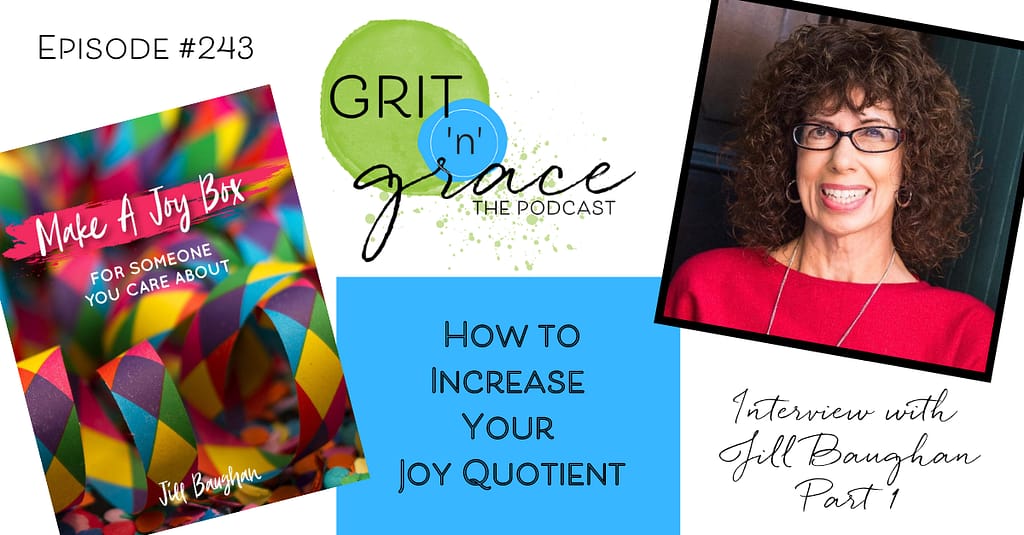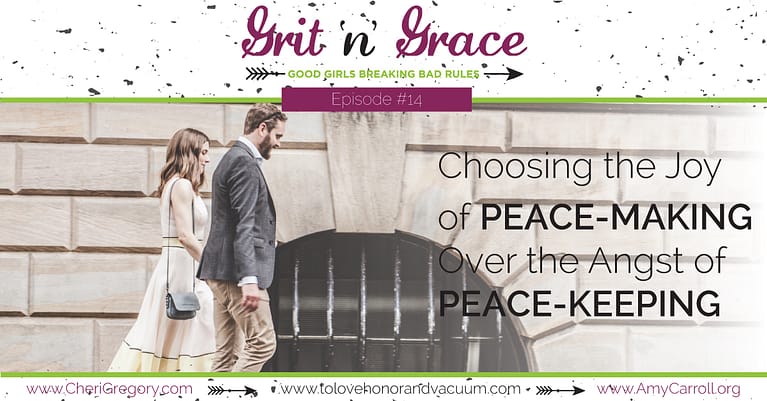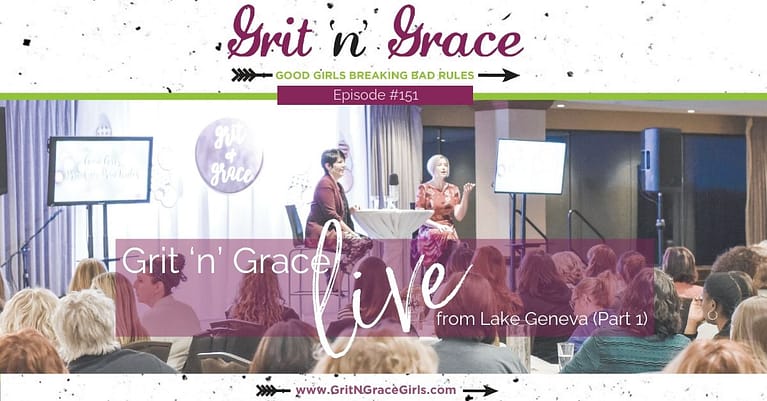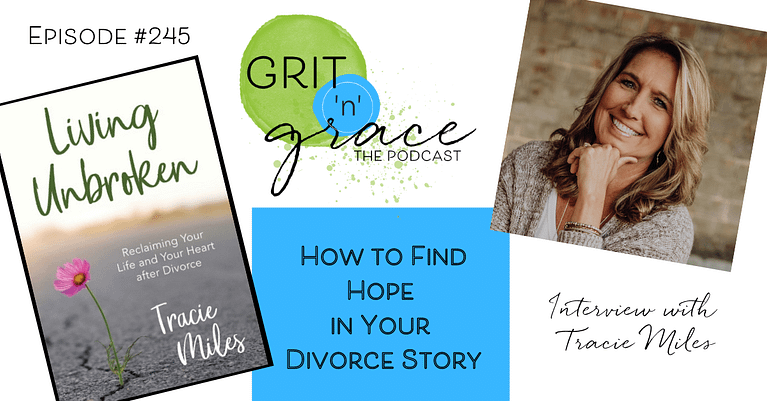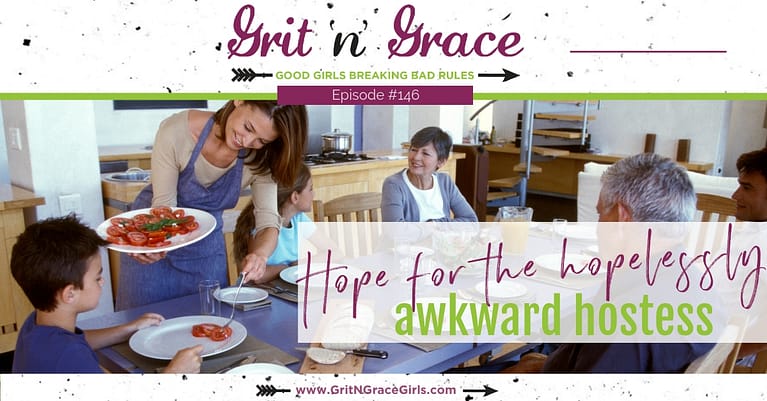Some folks seem wired for joy, carrying sunshine in their pockets everywhere they go. But what if your natural wiring leans more toward “cloudy” or if your circumstances have blown in some storms? Jill Baughan, speaker and author, reassures us that we can find joy… no matter what! If you’re struggling to dredge up joy right now, this episode is filled with practical wisdom and quirky, laugh-out-loud moments. (Portrait with a monkey, anyone?!)
(This page contains affiliate links. Your clicks and purchases help support Grit 'n' Grace at no extra charge to you.)
Recommended Resources
- Jill’s how-to guide — Make a Joy Box for Someone You Care About (click the link and then scroll until you see “Start Here“)
- Jill’s podcast Episode #21: “Search the Inside of a Big Bad Story”
- Jill’s podcast Episode #22: “Look for the Joy That’s Already There”
- Jill’s website — https://JillBaughan.com
Your Turn
- Are you wired like Tigger or Eeyore? Explain.
- In what circumstances do you struggle to find joy?
- What is one beautiful thing in that circumstance that brings you joy? (It can be tiny, and you don’t have to deny all the bad parts!)
Downloads
Featured Guest — Jill Baughan

Jill Baughan is an author, podcaster, speaker and joy-seeker who, as a kid on the Tilt-A-Whirl, learned this valuable lesson: It is indeed possible for a human being to laugh and throw up at the same time.
That truth followed her into adulthood and taught her, on a deeper level, that joy and tough times can coexist. We just have to be intentional about looking for the good stuff while we’re traveling through the hard stuff.
With this in mind, Jill now helps people find joy, no matter what other craziness is happening in life.
You can connect with Jill at her website, via Instagram, and on Facebook!
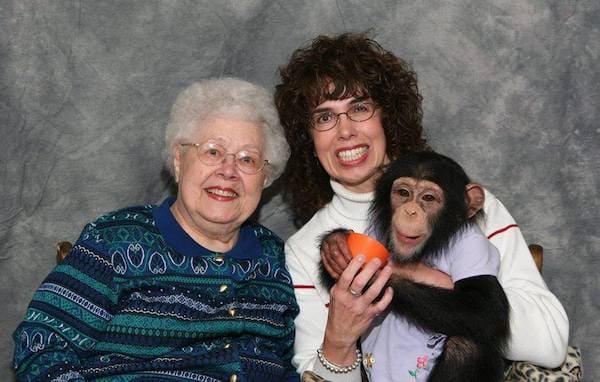
Transcript — scroll to read here (or download above)
****
Grit ‘n’ Grace — The Podcast
Episode #243: How to Increase Your Joy Quotient
Amy Carroll
Jill, I have to confess that I have been anticipating asking you this question all morning. And I’ll tell you why after you answer it. I heard this interesting thing about you: that you once rented a chimpanzee to come and play at your house for a couple of hours.
Jill Baughan
That’s right.
Amy Carroll
Can you tell us about that?
Jill Baughan
Who does that? Right?
Amy Carroll
Well, I was obsessed with monkeys when I was little. Do you remember that they used to sell them in pet stores long ago, do you remember that?
Jill Baughan
Not in my town.
Amy Carroll
Oh yeah. Maybe it’s just a North Carolina redneck thing. But I wanted a monkey. So do tell us about the time with the chimpanzee, please.
Jill Baughan
Okay, well, this was to redeem a lost opportunity for joy. I’ll tell you that. Years ago, my mom and I were at the Virginia State Fair. And we pass this booth that you could get a picture taken with a chimpanzee for $5. It was a great deal. My mother was always much more reserved than me, so she was a little hesitant. And I begged and begged. I said, “Mom, mom, mom, please, let’s get a picture taken with a chimp, please, please, please. And keep in mind, I was about 35 when I was doing this and my mom was 70, so I was not a child. She wouldn’t do it. And I asked – finally I said, “Why not?” And she thought a minute. And she said, “Well, somebody might look at it someday and think it’s a three generation photo.” And never cracked a smile. She was not trying to be funny. But that’s how she felt. So we missed that opportunity. We went on, and it never happened.
Well, about 20 years later, all my family was coming from Indiana to Virginia for a big event. And I was lying in bed one night, and I thought, is that not a great opportunity to redeem that lost chance of so long ago? Because I always regretted it. So I searched around, I networked, ask anybody, do you know where I can get a photographable chimpanzee? Just want one. And do you know, I found one, and not too far away. So I called him and he had a zoo in his home. And the chimp actually lived in the house with them. And I called him up and I said, “Please don’t think I’m crazy. But here’s what I want to do. I want to surprise my mom. She has no idea what’s going on.” He loved it. It was December and he said, “Well, you don’t want your mom” – she was in her 80s at the time. “You don’t want your mom out here in the cold. Why don’t I bring the chimp to your house?” And I thought this is better than good, you know.
So my whole family came and in the meantime, we got a photographer, one of my husband’s cousin’s photographer to come set up a backdrop in the house and all mom just thought we were taking some family photos there. When the chimp and the handler come up the sidewalk I said, “Mom, put some lipstick on, I got a surprise for you.” And that chimpanzee came in and she knew immediately, she knew. I said, “Remember all those – ” “Yes, yes, yes.” Well, she was all about at this time.
So for an hour and a half, we romped around with that chimp and got about 300 photos. It was the most fun I’ve ever had. I’m the crowning glory of the evening came though, when – first we sat down for a family photo. And I said – the chimp had a little dress on, apparently, she was a girl, and we sat her in front like one of the children. So I said, it’s like one of those old family photos that somebody looks at years from now and says, “I know everybody else – who’s the kid in the front?” But when my mom and I sat down for the photo with the chimp, the whole thing was redeemed. And I thought this is the joy times 100,000 right here. So I keep a picture of that. That was quite a while ago.
Amy Carroll
I’m obsessed with this story. And I believe we have that picture, Jill, is that true?
Cheri Gregory
Yes, we do.
You sent it to us! And we are going to post it on the website. So everybody needs to go visit grit and grace dot what everybody needs to go visit gritngrace.com so they can see Jill and her mom and the chimpanzee.
Jill Baughan
It is awesome. So anyway, it was just to redeem a lost opportunity. I highly recommend it.
Cheri Gregory
I am now obsessed by this story too, because this idea of redeeming a lost opportunity for joy – Jill, I’m going to confess, it is completely foreign to me. Okay, I’ll tell you what I have heard my entire life, and I’ve said it inside my own head. ‘The moment has passed.’
Jill Baughan
So final.
Cheri Gregory
Yeah, yeah. And I believed that. And so I’m listening to you saying that you always regretted it and now that, I identify with. I’m a muller and a stewer and a regretter and a recriminator, I’ve learned that word recently. But the idea of actively finding a way to redeem a lost opportunity for joy never occurred to me. Where does this idea come from? How did you know how to do that?
Jill Baughan
I think it was just built into me. I was so obsessed with the idea. With with the chimpanzee, I just – I remember thinking to myself, even as we passed it up, someday, if I ever get the chance again, I will do this. So it just never left my mind.
Cheri Gregory
Okay, so that then is the difference. Instead of the moment has passed, it’s lost and gone forever, the door is shut. Somehow in your mind, you were immediately thinking future, someday, you left the door open.
Okay, so this leads me to my next question. Are some people just more naturally joyful than others? Like either you have it or you don’t.
Jill Baughan
I believe there’s some truth to that. I think people some people are wired more toward Eeyore, and other people are wired more toward Tigger. I do. And I’ve done some reading on it. And that – I’ll be honest, I don’t know who did the research. But I’ve noticed it in different people, that some people are just wired to be a little more subdued and a little more pessimistic. I have read that that’s about 50% of it, your wiring. I’ve also read that about 20% has to do with circumstances. And everybody can relate to that, obviously, when things aren’t going well. But that leaves 30%. 30% of it just might be up to you. And it might be that there’s some things that you can do to enhance your your joy quotient, I guess if you want to call it that. So maybe a little bit. I think we’re all wired differently. And I think people who aren’t wired for that ‘Woo hoo!’ get a little frustrated with the people who are and vice versa. I’ve heard people say that, “How can you be so happy all the time?” Well, nobody is. But yeah, I do. I do think we’re predisposed, somewhat, but significantly wired also to be able to do something about at least 30% of it.
Cheri Gregory
Okay, so I don’t find people who are joyful annoying. I find people who are joyful, who insist I could automatically be as joyful as them if I just tried harder annoying. So I don’t find you annoying at all. That as a great answer, because it acknowledges a certain reality. But you know, of course – we’re just at the end of the school year, we’re recording this at the end of a school year. So grades are in my mind. 30% is the difference between not just pass or fail, it is a it is a three grade level difference. So that that 30% means we can substantially make, we can make a very substantial difference here.
So talk to me, Jill, I’m going to represent our friends who are listening who are maybe wired more like Eeyore than Tigger. What are we going to do? What are some the advice that you have for those of us who need to really tap into that 30% where we have some choice?
Jill Baughan
Well, I’ll tell you something, and it’s not going to sound like fun at first, but it really can be. And that’s a word called mental discipline. I told somebody one time it sounds like low carb thinking, no fun at all, none. But here, let me give you a quote from an author – you may have heard of him – called Tommy Newbery. In a book of his, 40 Days To A More Joyful Life, he said this and I have never forgotten it. He said, “Though God’s grace doesn’t demand mental discipline, living a life of joyful excellence must be preceded by it.
So mental discipline – in fact, I prefer the phrase focusing your mind. Making an effort to focus your mind in the other direction because I am such a firm believer, when I say find joy, you can find joy no matter what. I believe it’s always there. Sometimes people think that, you know, joy is just a cover up or you know, “Isn’t that fake?” Because you know, you’re acting happy and you’re not, it’s a fake it ‘til you make it kind of thing. But I believe joy walks alongside every thing in our lives, a lot of times and seasons, there are seasons where the joy goes underground.
And I am the first one to admit, because a lot of people have asked me “Well, what about a time when there’s just nothing? There is no joy.” And I will be the first to admit there are times, there are situations, things happen, where there is no joy, I will give you that because I’ve been through them myself, or it seems like there is no joy, I still believe it’s under there somewhere. So one of the things you can do, I think, to focus your mind is to first of all, ask God to focus your mind. It’s hugely, hugely helpful. It’s not a cliche, it is hugely helpful. And then I tell people, and I do this myself, to mind your moments. Because moments are bite size, and they’re easier to find joy and sometimes than an entire life. And then make them concrete.
So one example of that that I love to share with people is photo journal. It was introduced to me by a journalist years and years ago – she was undergoing chemotherapy for breast cancer treatments and she was turning 50. And her husband gave to her the materials for a photo journal. And with the instructions ‘Take a picture every day of something good that happens.’ But here’s the caveat, and it’s more difficult for some people than others: print it out. I mean, who doesn’t have 3000 pictures in their phone that will probably never see the light of day because you just put them in your phone. But it really helps to print the photo out. And you can do this and put it in a book.
You can do this for a season. Sometimes I’ve done it for Advent before, because every year I tell myself, this holiday season is not going to be crazy. It’s not going to be crazy. I’m not going to let it be crazy. I’m not, I’m not, I’m not. And then I do, I do, I do. Or holidays are very sad for some people. If you’re going through a season of sorrow, or a month or a week, it doesn’t have to be the rest of your life that you keep a photo journal, but you can decide, some people will say “Oh, I’m just going through such a hard time. I don’t, I just can’t do it.” And I will say to them, that’s the time when you need to do it more than ever.
Because I have found that the last thing at night, and I think we all know night, if you’re going through a tough time, it’s the hardest, because that’s when all the noise quiets down. And if you’re anything like me, away goes your head into every thing because it’s quiet. If I can reach over on my nightstand, and the last thing I look at, and put in my mind, before I go to sleep at night is goodness. So, so comforting, so soothing, and not hard. It’s just not hard to do something like that. So making things concrete.
Cheri Gregory
I love that. I love that.
Amy Carroll
I do too. I’m really visual. And so a lot of people will say gratitude journals. And those are great, but I love this visual component, it’s a little bit of a different twist. I love that.
So you’ve given us something tangible, that points us back to joy. But if we’re in one of those seasons, that 20%, we just feel overwhelmed by the circumstances of the 20% that you talked about. How do we find God in those seasons?
Jill Baughan
Well, first of all, sometimes people beat themselves up for saying, “I’m sitting here. I can’t find him. I can’t find him. What’s wrong with me. What’s wrong with me?” And I say, there is nothing wrong with you. There’s nothing wrong with you. And I think you should give yourself permission to just sit in it and name it. And I think the time that you spend just sitting in it and naming it is essential, you need to do that before you move on. Because I don’t think you can move on until you acknowledge something like that. And then after that, I think I have told people before to look inside the big bad story for him.
A year ago April, when the pandemic was just raging everywhere, my father-in-law was in an assisted living residence. He was 90, and he got COVID. And then, of course, we hadn’t been able to see him see him for a few weeks. He couldn’t breathe, it took him to the hospital, he wasn’t doing well, wasn’t doing well. And it became very clear that he wasn’t going to make it. And we were on FaceTime with him. It was just hideous trying to talk to him. He couldn’t breathe, was having a hard time breathing. And at one point, he said, and he was fully cognizant, at one point, he looked at us and said, “I’m ready to go.” And my husband, who is very, very, very close to his father, just “Excuse me?” It was so so hard. We said, “Keep him comfortable.” Because what else can you do? And they did, and he slipped into an unconscious state. We didn’t want him to hurt.
And the nurse had her phone and held – it was her phone, not the hospital phone, her phone. She was totally suited up with the mask, with everything, you know, as healthcare workers, have been risking her own life. But she was touching him, stroking his hair, so comforting. She put on – the night before, hymns on the computer that was in the room, having no idea that that’s how he actually went to sleep every night, to old hymns. She was talking about how sweet he was. Just comforting, so comforting. And she held the camera while we watched his chest go up and down. And finally, when it didn’t raise any more, my husband said, “I think he’s gone.” She checked, she said, “Yes.”
And I will tell you, it was the most terrible, beautiful thing I’ve ever seen all at the same time. Because last breath here, first breath in heaven, horrible that we had to be on FaceTime during that, miraculous that we could be on FaceTime for that, you know what I mean? So all kinds of things. Not to mention, this nurse was such an angel. We looked her up, we hunted her down afterward and talked to her and wrote to her and and said, “Do you have any idea?” Well she cried with us. She was just so there.
So this is what I tell people. God is in the nasty stuff, too. It’s just all in there together. But don’t be afraid to cry and say, “Where are you? And why?” Because we may not get an answer, but at least it’s an acknowledgement that this is terrible, but there is beautiful inside the terrible. It may take you a while to find it. Or to realize it was there. I don’t know how theologically brilliant that answer is.
Amy Carroll
That sounds like a real answer to me. And yeah, and I think that’s what we’re all looking for. We don’t need like sugary icing slapped on top of stuff that’s hard. And just recently I received some words, I guess people have been using them for a long time, but they were new to me to wrap around the seasons of consolation, that there’s this natural joy in our circumstances, and seasons of desolation, and these are the seasons where joy can be found really in God alone, because our circumstances are so tough, but He’s there in both desolation and consolation.
Jill Baughan
Absolutely. Absolutely.
Cheri Gregory
Jill, thank you so much for sharing that, that that whole experience with us. I very much feel like we’re on on holy ground. And the the note I wrote to myself here is God is in the nasty stuff, that’s a great reminder. And but also, He’s there because even the worst of the worst can’t chase him out. And to remember that And you use things like it was terrible and beautiful and horrible and miraculous, and the ability to recognize they’re both present at the same time.
I’ve dealt with too many people who I perceive to be Pollyanna about joy, and I feel myself leaning much more forward, like, okay, you know things about joy I’m willing to listen to because you also acknowledge the hard stuff, right? That’s the problem that I have is the suck it up buttercup, pretend it didn’t happen, just move on in our family. And I’ve actually been at a family memorial service where it was made clear in our family, we smile through everything. And I’m like, well, you just left a few people out. They aren’t part – they either have to fake the smile, or they’re not part of this family anymore. So I just I really appreciate your expanse expansive approach to this and that, as opposed to the either or.
So I’m going to go ahead and move on to a listener question. And because I think it relates really well, so we like to invite our friends who listened to submit questions, and one of them submitted a question I think fits really well here. You’ve given us an illustration. And so I’m going to go ahead and ask her question she has How do you balance the real need for human response to tragedy or hard time and find a way to turn that around? It feels like pretending or faking it or lying. If things are bad, it feels really wrong and in genuine to act like it’s not.
Jill Baughan
You don’t have to act like it’s not. That’s the thing. I think some people – it sounds like an old saying, because it’s almost cliche, but there is… there really is a difference between happiness, circumstantial circumstances and laughter, which is also associated with happiness, and the joy where you can tap into something deeper, Someone deeper. So again, that’s a short answer to that question. But you don’t have to pretend everything is great. What I think is key is that you stay open to looking, always looking for joy. That’s walking alongside it. Always looking.
Amy Carroll
Yeah, I feel like you’ve given us a picture of joy as a flotation device.
So in those – really those times of desolation or grief, deep sorrow, it’s not that where we’re soaring over at all, but we’ve got something to hang on to that keeps us from completely sinking into the depths.
Jill Baughan
If you pay attention – I think a lot of times when we’re in the midst of a terrible time. We don’t pay attention, and we’re not intentional enough about looking for it. It’s just there. Our eyes are just focused on on the rough stuff, understandably. But that’s where that’s where I have a lot of hope. Because there are things you can do. You can say, God, please focus my mind on something that is good. And that is joyful, and that is not denying what’s happening. It’s just just seeing both.
Amy Carroll
Well, you might have given us a clue to the answer for this next question, but I can’t wait to hear what you say. We hear about comedians who bring so much laughter and joy to others, but they struggle with private demons of depression. I think about Shonda Pierce, she’s been very open about a struggle. Can joy be a mask or a form of numbing or escape?
Jill Baughan
I think laughter can be a mask. I think laughter, joking. And there’s nothing wrong with laughter, obviously, but I think it can be an escape. You know, Robin Williams is another one that I’ve always thought of that just manic humor, brilliant, brilliant comedy. And I don’t know the psychology of his makeup or anything, but I do know that it can be laughter and jokes. And while they can, they can bring some reprieve in, in a sad time, in a sad life, and they’re not a bad thing. Sometimes you just need a shift of environment, even in your head to remind you that laughter is good, laughter is fine. But laughter can absolutely mask other things. So I think it’s more laughter than joy. I don’t think joy is a mask.
Amy Carroll
Thanks for making a delineation or defining those two things for us.
Cheri Gregory
So Jill, how would you define joy?
Jill Baughan
Oh, wow. I don’t know that I’ve ever done that before. You can edit out my silence, right? I would define joy as a deep delight that is always available to all of us. That’s how I would define joy. That’s not a super holy answer. But I think the deep delight comes from in my life anyway, a relationship with God because nestled in that deep delight is hope, and encouragement, and guidance and everything that plagues us, you know, of course, is nestled up in him, but I would define it as as a deep delight. I may have more later.
Cheri Gregory
No, I love that definition.
Amy Carroll
That’s beautiful.
Cheri Gregory
That can encompass so much.
Amy Carroll
Jill, what closing words do you have to motivate our friends who long to find that joy, that deep delight, no matter what else is going on in their lives?
Jill Baughan
I would give them these words. And they are words that I end every podcast with. And that is this: I tell people to always, always remember, if you go looking for joy, you’ll most likely find it walking right alongside the tough stuff in life. Just be intentional about pulling from that joy while everything else is going on.

